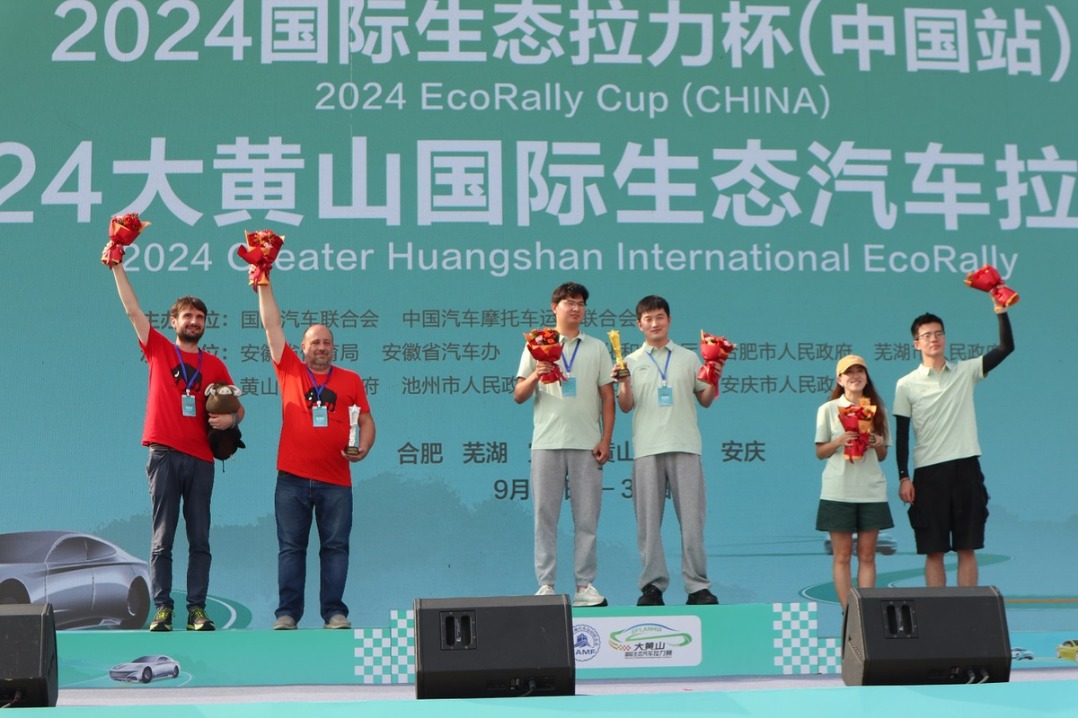Macao govt urged to propel Chinese modernization


Senior officials and social leaders in Macao have highlighted the city's gateway role in the nation's ongoing reform, urging the government to follow the guidance of the nation's new economic policies and reforms.
Their remarks followed three high-profile seminars on Tuesday and Wednesday at which the guiding principles of the third plenary session of the 20th Central Committee of the Communist Party of China were discussed. The plenum introduced a significant resolution with over 300 reform measures to propel Chinese modernization.
The seminars, addressed by Shen Chunyao, chairman of the Legislative Affairs Commission of the Standing Committee of the National People's Congress, and Commerce Minister Wang Wentao, drew about 1,400 representatives from all walks of life in the city.
The two central government officials encouraged Macao to align with national development strategies and leverage its unique advantages to support the country's reform efforts, receiving a strong endorsement from the attendees.
Kevin Ho King-lun, a Macao deputy to the National People's Congress and president of the Industry and Commerce Association of Macao, reaffirmed the city's role as a "specific connector", as it maintains close ties with Portuguese-speaking and ASEAN countries. He said he believes that the city can leverage these networks and its international influence to positively represent the nation globally.
Macao Secretary for Administration and Justice Cheong Weng-chon said that deepening reform of the public administrative system is of great importance to the special administrative region government.
While progress has been made in enhancing administrative efficiency, more bold reforms are needed, such as restructuring public departments, simplifying public service processes and increasing accountability for officials, he said.
Chan Tze-wai, deputy director of Macao's Economic and Technological Development Bureau, highlighted Macao's role in promoting a higher level of openness for the nation.
By leveraging the institutional advantage of "one country, two systems" and multilingual proficiency, the city can serve as a gateway to help more foreign enterprises access the vast Chinese mainland market, and facilitate collaborations between China and Portuguese-speaking nations, she said.
She added that Macao can collectively drive the development of the nation's new quality productive forces together with other cities in the Guangdong-Hong Kong-Macao Greater Bay Area.
Macao's strengths in research fields like integrated circuit design and traditional Chinese medicine, combined with Guangdong province's industrial capacity, offer complementary benefits, she said.
Ng Wai-han, director of the Public Administration and Civil Service Bureau, said the third plenary session reinforced Macao's determination to deepen public administration reforms.
She pledged that her bureau will focus on innovating public services further and enhancing the capabilities of civil servants, including management, to allow government services to better address the needs of residents and enterprises.
In Hong Kong, three similar seminars took place on Sunday and Monday, prompting discussions and implementation of the national resolution among officials and the community.
- International NEV rally concluded in Anhui
- Conservation at Sanjiangyuan: Protecting the roof of the world
- Inspirations for change: Inner Mongolia's green development
- British journalist witnesses commemoration of Confucius
- Feeding koi fish at Kong Family Mansion in Quzhou
- PLA conducts combat preparedness patrol in South China Sea





































